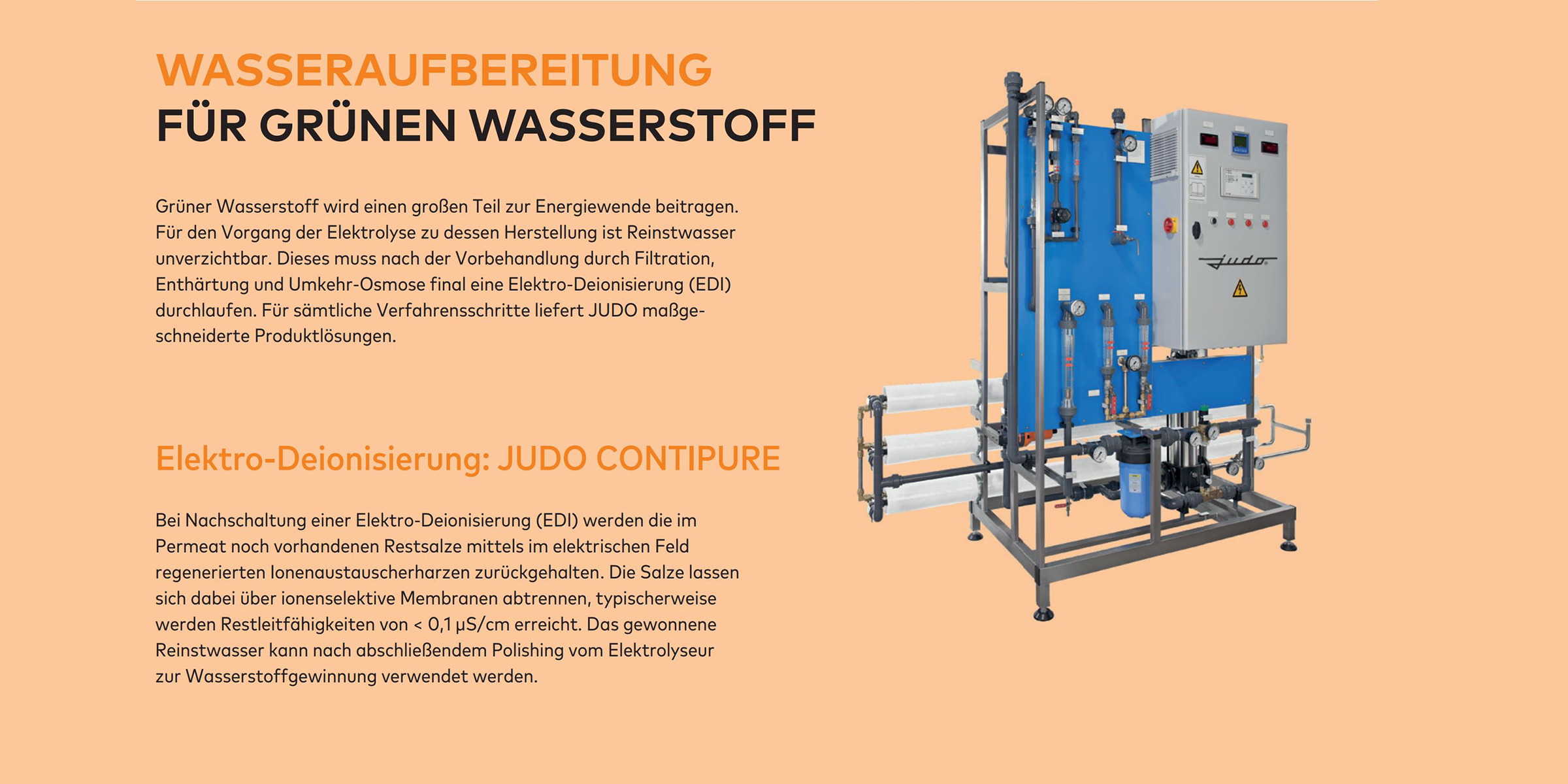Report
Efficient solutions for home well owners
Sustainably improve the quality of the company’s own water
Open the tap – and the water runs. But where it comes from is often not clearly known to most consumers who obtain their water from central public supply systems. The issue is very different for remote farms, industrial companies and households. There, a water supply from public facilities is often not possible or sensible from a logistical or economic point of view.
An alternative solution is then to obtain drinking water from self-supply plants. If such a solution is used, it is important to know which paths the water has travelled and what substances it is enriched with.
Whether washing clothes, cooking, taking a shower or simply drinking – people need clean water everywhere in their everyday lives. In most households this comes from central, public supply systems. But there are also some exceptions:
Around 700,000 Germans get their water from their own small water supply systems, such as spring tapping or wells.
Many factors have an influence on drinking water quality
Own domestic wells, also known as decentralised small waterworks, are an essential component of the water supply, especially in rural areas. The water is mainly drawn from spring water and near-surface groundwater reserves. The Drinking Water Ordinance generally distinguishes between small plants for self-supply and decentralised small waterworks from which the drinking water is supplied as part of a commercial or public activity – for example to tenants, holiday guests or commercial enterprises (fewer than 50 persons). The quality of the water extracted from the ground depends strongly on the geological conditions and the environmental conditions on site. Rainwater already absorbs various substances in the atmosphere that change it. As it flows through the soil layers, water accumulates ever greater quantities of substances. Microorganisms are always added to this. Legionella is also found in practically all naturally occurring waters. These unwanted ingredients then end up in the groundwater. The occurrence and composition of the minerals contained in the soil determine the degree of hardness of the water: If a large amount of calcium and magnesium ions get into it, for example, it becomes hard. This is particularly the case in areas with a lot of limestone or chalk-containing rock.
The German Drinking Water Ordinance also applies to domestic water
The owner of a well is responsible for maintaining the quality of drinking water. In the case of domestic wells that are also used by third parties, the drinking water ordinance also requires the owner to carry out an inspection of the area surrounding the water catchment system at least once a year and to intervene if necessary. In order to avoid problems caused by contaminated drinking water, the well water should be treated before it enters the domestic water circuit.
In addition to the requirements of the Drinking Water Ordinance, the individual needs of the owner and the nature of the environment play a decisive role in the selection of the optimum process. In order to determine the quality of one’s own drinking water in the first step, an exact analysis is always necessary – even if there are apparently no conspicuous features that indicate any impairment.
Well examined is half prepared
A comprehensive analysis of your own water, such as that offered by JUDO Wasseraufbereitung GmbH from Winnenden, for example, provides clarity about the nature of the water. In addition to odour, sediment, turbidity and colour, the water is also examined for conductivity, pH value and acid capacity up to pH 4.3 (carbonate hardness). In addition, the total hardness, and if necessary the base capacity, iron and manganese and possibly ammonium, nitrate, nitrite, chloride and sulphate are checked. Once the results are available, the well owner can choose from a wide range of products to find the solution best suited to the nature of the well water and its requirements. Another reason why regular analysis and possible treatment of the drinking water makes sense is, besides one’s own health, regular inspections by the public health department, which is obliged to monitor water supply systems. The Drinking Water Ordinance also stipulates that not only limit values that are exceeded, but also perceptible impairments of taste, colour and turbidity, as well as unusual occurrences in the surrounding area, must be reported to the public health department. This is because exceeding some parameters can pose a health hazard. The regular inspections of a well system must be carried out by an accredited body and the results must be reported to the public health department. Thereafter, a retention period of at least ten years applies. For the operator of a decentralised small waterworks, the obligation to carry out inspections is very extensive, especially during initial commissioning. If he also uses chemicals for treatment, he must document this regularly by recording the substances used and their concentration in the drinking water. In addition, only substances that are listed according to § 11 of the Drinking Water Ordinance may be used.
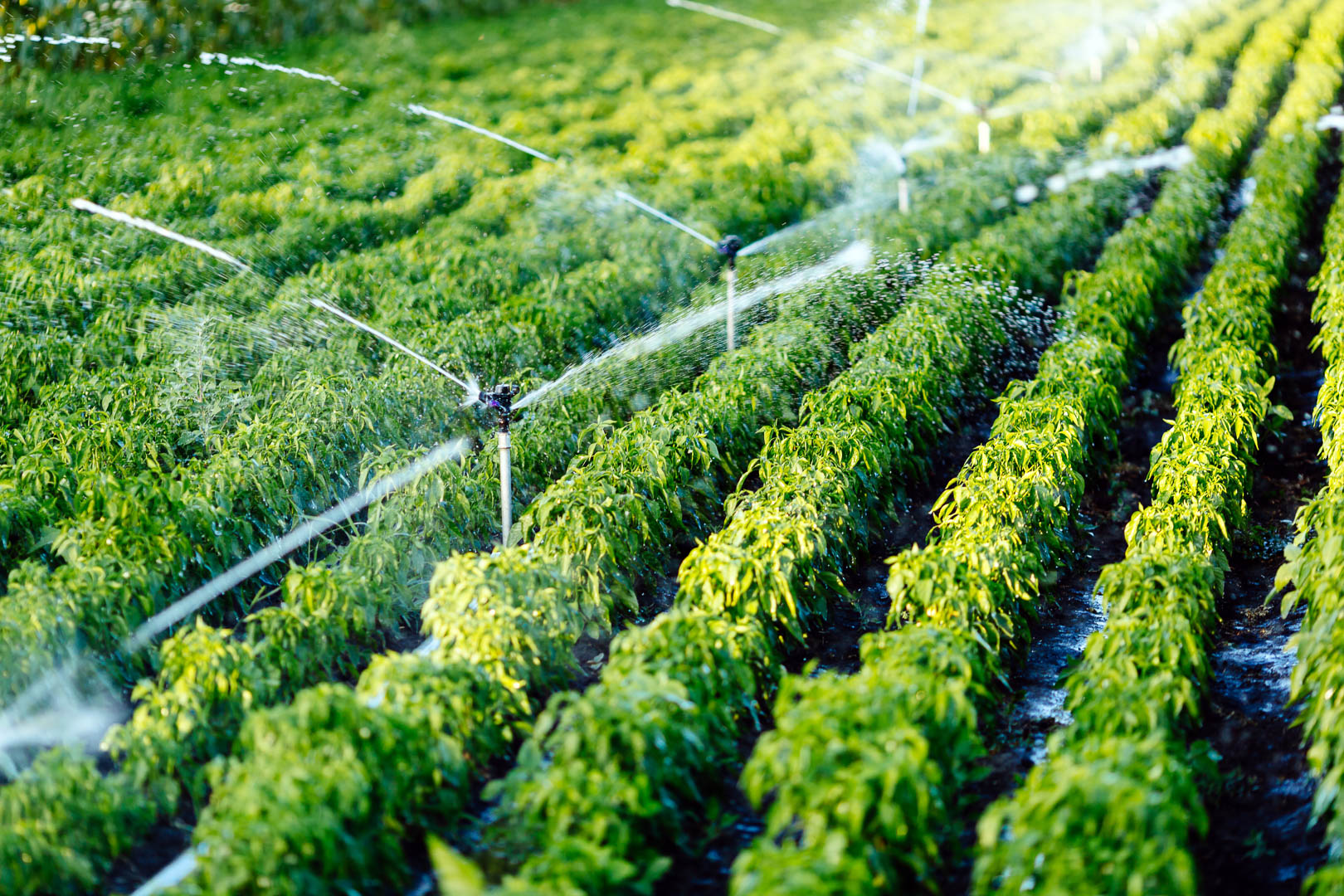
For remote agricultural enterprises, industrial enterprises and households, water supply from public facilities is often not possible or reasonable from a logistical or economic point of view. An alternative solution is then to obtain drinking water from self-supply plants.
Possible disturbance factors with well water and their elimination:
Turbidity can cause damage to the installation
Several factors have a negative influence on the well water. After heavy precipitation or in the case of well water with a share of surface water, the pumped water often contains an increased content of suspended or turbid matter. On the one hand, this can cause mechanical pollution, which can lead to downstream installations becoming defective and thus no longer functioning reliably.
On the other hand, the suspended matter content can also represent a microbiological load due to organic impurities and the formation of colonizable surfaces.
Control the iron and manganese content of the water with filtration
The most common substances found in well water are iron and manganese compounds. They lead to silting up of pipelines and installations as well as to a discoloration of the water. Corrosion can be the result.
A possible solution against turbidity as well as the iron and manganese content is the treatment of well water by filtration. Fixed-bed filters such as the E-series filters from JUDO are suitable for very different applications.
Depending on the requirements, the fixed-bed filters are used for deferrization, demanganisation, deacidification, decolourisation as well as for improving the odour and taste of well water. The water flows through the closed filter container from top to bottom. The undesirable accompanying substances are retained in one or more layers of filter material with different grain size and composition.
Stone formation: Stop lime even before it develops
An increased content of hardening agents such as calcium and magnesium can lead to stubborn deposits and encrustations in pipe systems, on fittings and equipment. Softening well water therefore improves the water quality considerably. Soft water reduces the deposition of lime – and thus the amount of cleaning required. In addition, it protects the water pipes from a pipe infarct. For water with a high lime content, softening plants that work according to the ion exchange principle are a good choice. The hardness builders calcium and magnesium are filtered out by resin beads and replaced by sodium. With softeners – such as those from JUDO – quantities of between a few 100 litres per day to 100 cubic metres per hour are possible. The water softener has single, double and hygiene-optimised parallel softening systems in its range. When treating well water, space is often particularly limited. Compact models such as the JUDOMAT WZ-P are a suitable solution here. The parallel softening plants supply constantly soft water through their two tanks.
High nitrate levels are hazardous to health
Too high a nitrate value also significantly impairs the quality of drinking water. Under unfavourable conditions, an increased nitrate value in well water can be converted into nitrites or nitrosamines. The latter are considered carcinogenic, but nitrites can lead to cyanosis in infants, as they hinder the transport of oxygen in the blood. In this case, special systems are suitable for regulating nitrate. For example the DENITRATOR from JUDO.
It also works on the principle of ion exchange. The water containing nitrate is passed through a high-quality, nitrate-selective anion exchange resin. The nitrate contained in the water is exchanged for chloride and thus reliably removed.
Salt in water significantly impairs drinking water quality
Even water with a high salt concentration is not harmless to health.
Salty water also has strong corrosion-promoting properties. Its use as irrigation water leads to salinisation of the soil and, in the worst case, to the death of plants. Especially in coastal areas or on islands, the salt concentration is usually very high. Reverse osmosis plants are suitable for desalinating clear, manganese-free water.
In JUDO’s plants, the water is desalinated using semi-permeable membranes. These are only permeable for pure water – but not for the salts, heavy metals, pesticides, viruses or bacteria dissolved in it. After treatment, the residual content is only about three percent of the raw water salt content. By blending with raw water, different water qualities can be achieved.
Great risk due to contamination
A further risk is posed by the contamination of drinking water. A risk of contamination exists, for example, in catchment areas with the spreading of animal faeces, as well as during heavy rainfall and the intrusion of surface water into the groundwater. There can also be a health hazard in areas where fertilisers, pesticides or pest control agents are frequently used. UV sterilisation systems are used for the targeted sterilisation of clear water free of iron and manganese. JUDO devices make use of the germicidal effect of UV-C radiation at 254 nm.
This is how UV disinfection works: The water flows through the irradiation chamber with high-power low-pressure UV lamps. All microorganisms become inactive within seconds. One advantage: The UV radiation makes the process chemical-free. In general, DVGW or ÖNORM-tested UV disinfection systems must be used to produce drinking water quality.
Ultrafiltration plants are suitable for the optimal treatment of iron- and manganese-free water of different quality such as well water, surface water, but also brackish and sea water. These not only remove germs, bacteria and viruses, but also turbidity and suspended matter using a special membrane process. In doing so, it leaves the composition of natural ingredients – such as minerals and trace elements – unchanged. Other water treatment technologies such as reverse osmosis plants work much more reliably and economically if ultrafiltration is used as a pre-treatment upstream.
Counteract corrosion with the right dosage
If the water, especially soft water, has an excess of free aggressive carbonic acid, it can attack metallic pipes and fittings. Increased chloride and sulphate contents also promote corrosion and are aggressive to concrete. Especially in such cases, the additional dosage of a precisely adjusted mineral solution improves the water quality and protects the pipelines. Among other things, the solution forms a firmly adhering protective layer on the inner wall of the line pipes. This protects the metal from corrosion. Other special mineral solutions stabilize the lime in the water.
They prevent hardness constituents from precipitating and depositing in pipes and equipment. JUDO’s dosing pump systems are used in the field of pre-treatment in self-water treatment plants, for example for the addition of flocculants or oxidants. In addition, they can also be used as stand-alone water treatment systems – for example to raise the pH value, stabilise hardness or promote the protective layer structure in metal pipelines, to sterilise drinking water and to disinfect pipeline installations. For the treatment of well water, for example, the volume-proportional dosing pump systems of the JUDO WADOS series are suitable.
One device for a variety of applications
Own water can therefore contain many different substances. Depending on this, the water must also be treated differently. Universal plants offer the optimal solution here. The JUDOMAT EF, for example, is suitable for softening, with simultaneous deferrization or demanganization through ion exchange of clear and colorless drinking and process water. The process is also effective against increased ammonium and hydrogen sulfide content. Thus, the device combines many aspects of a uniform water treatment centrally in only one plant.
The JUDO sales team will be happy to work out an individual treatment proposal on presentation of a water analysis or water sample and mentioning the required flow data.
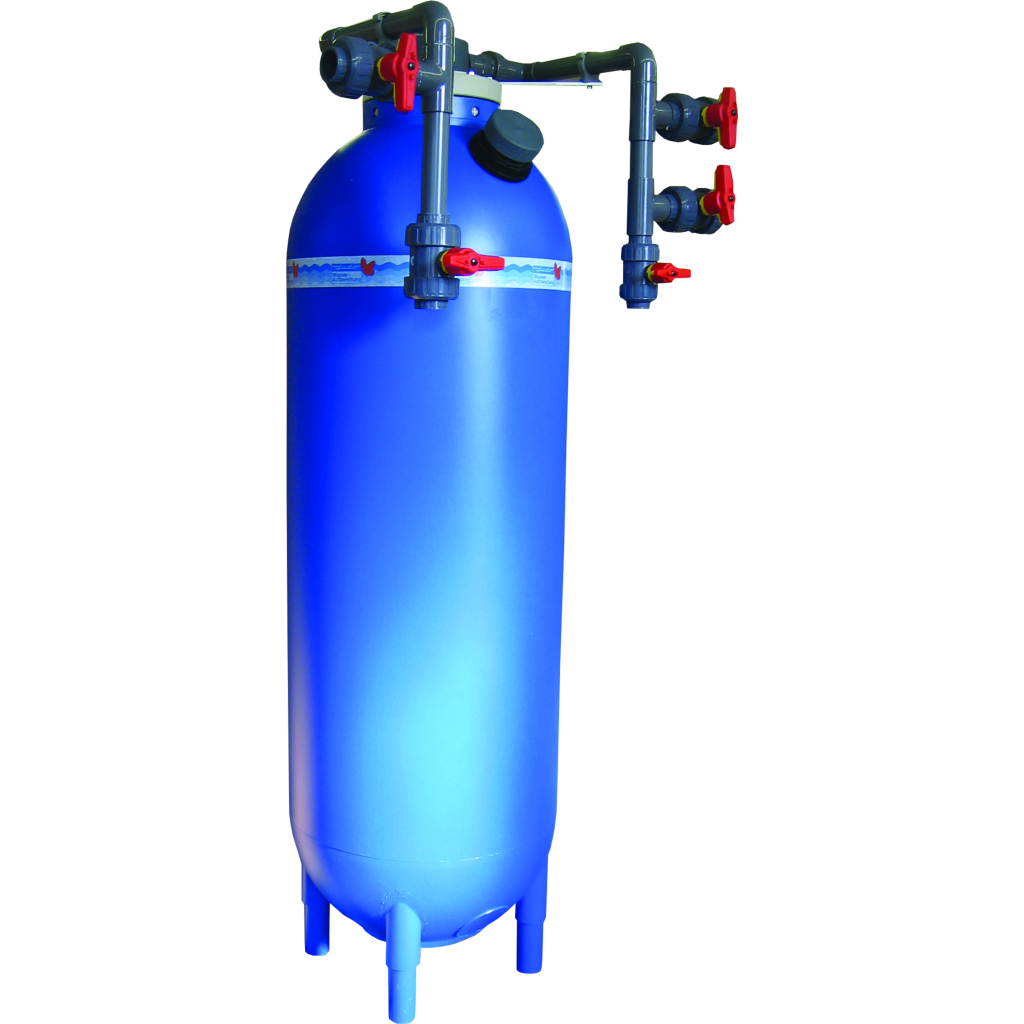
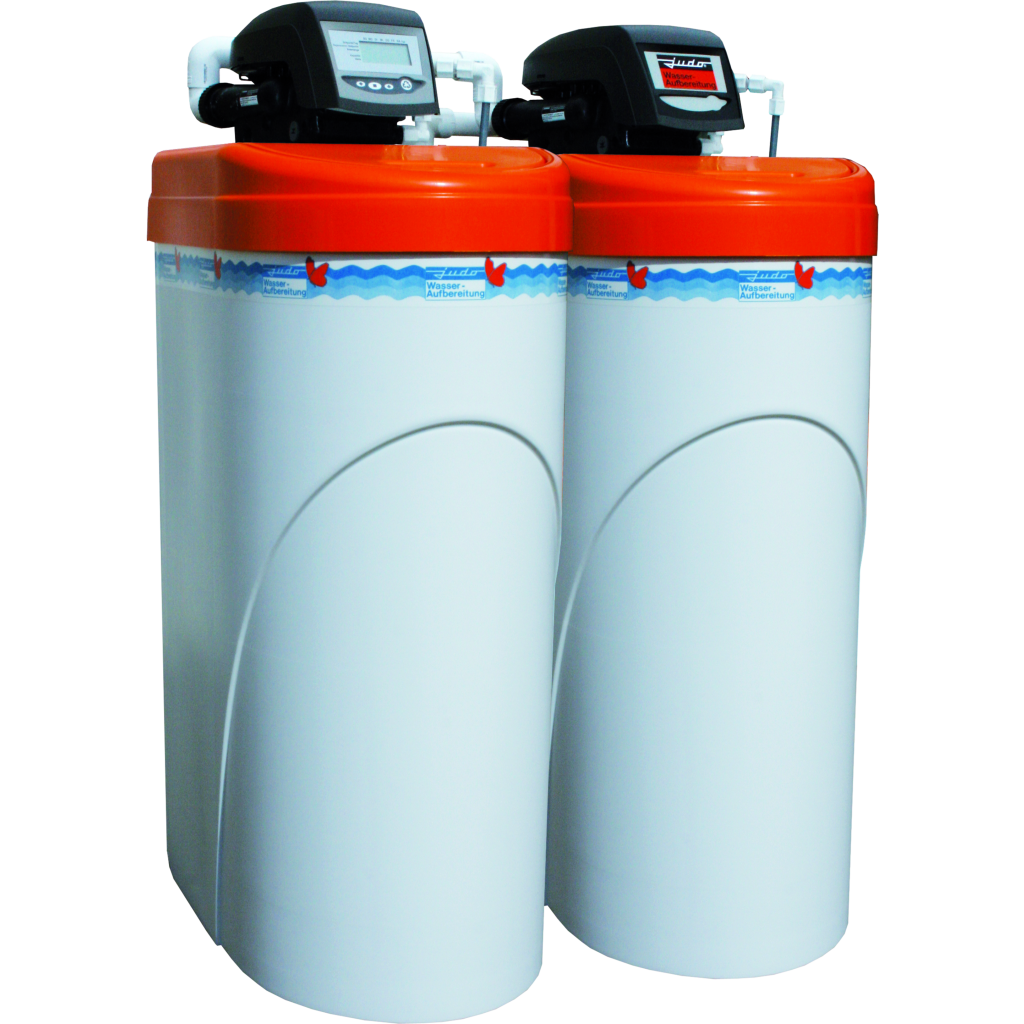
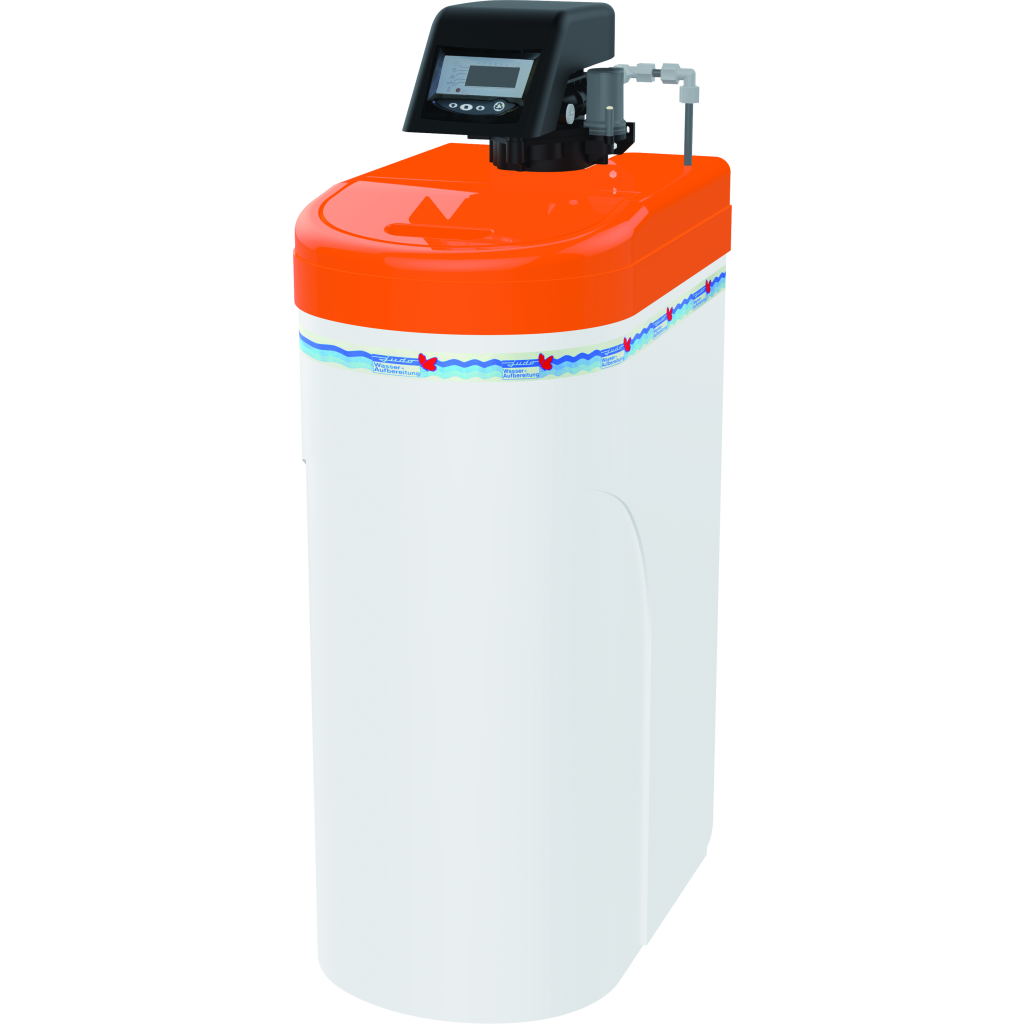
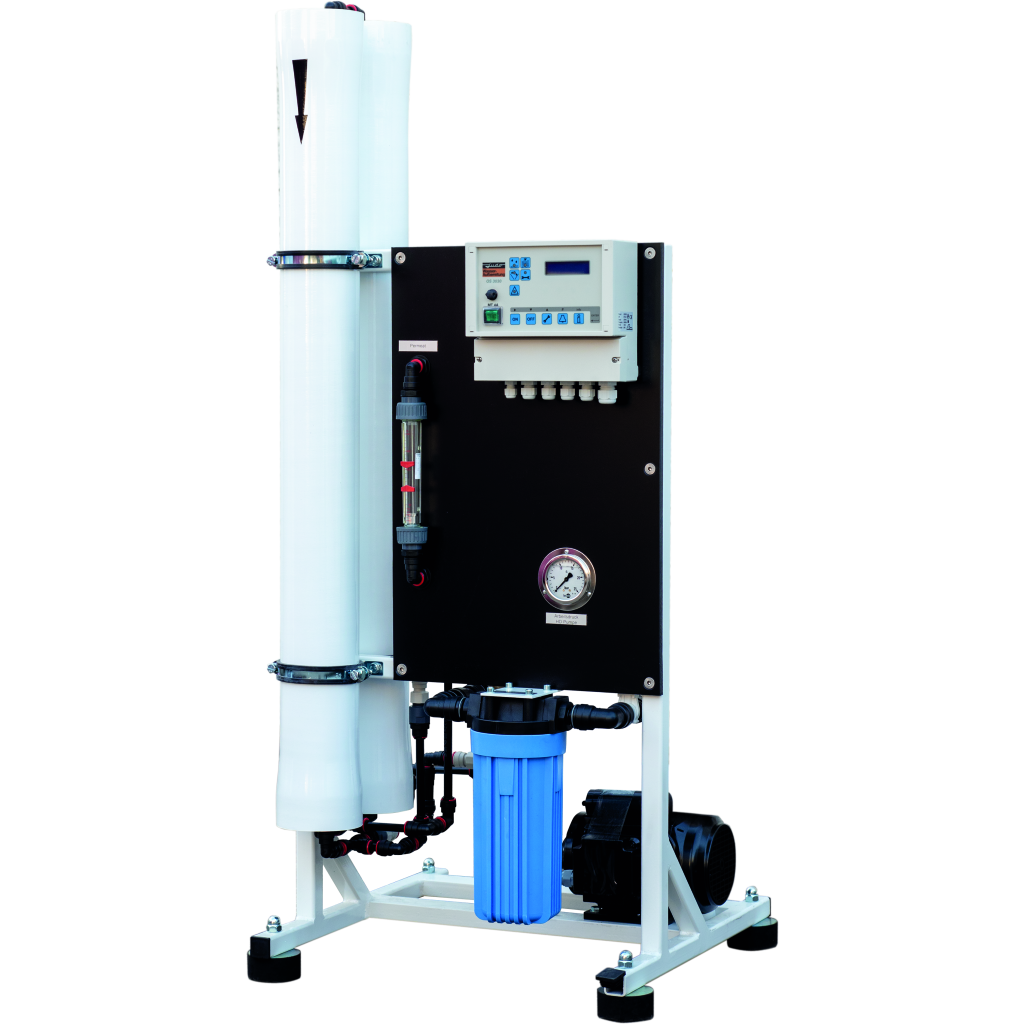
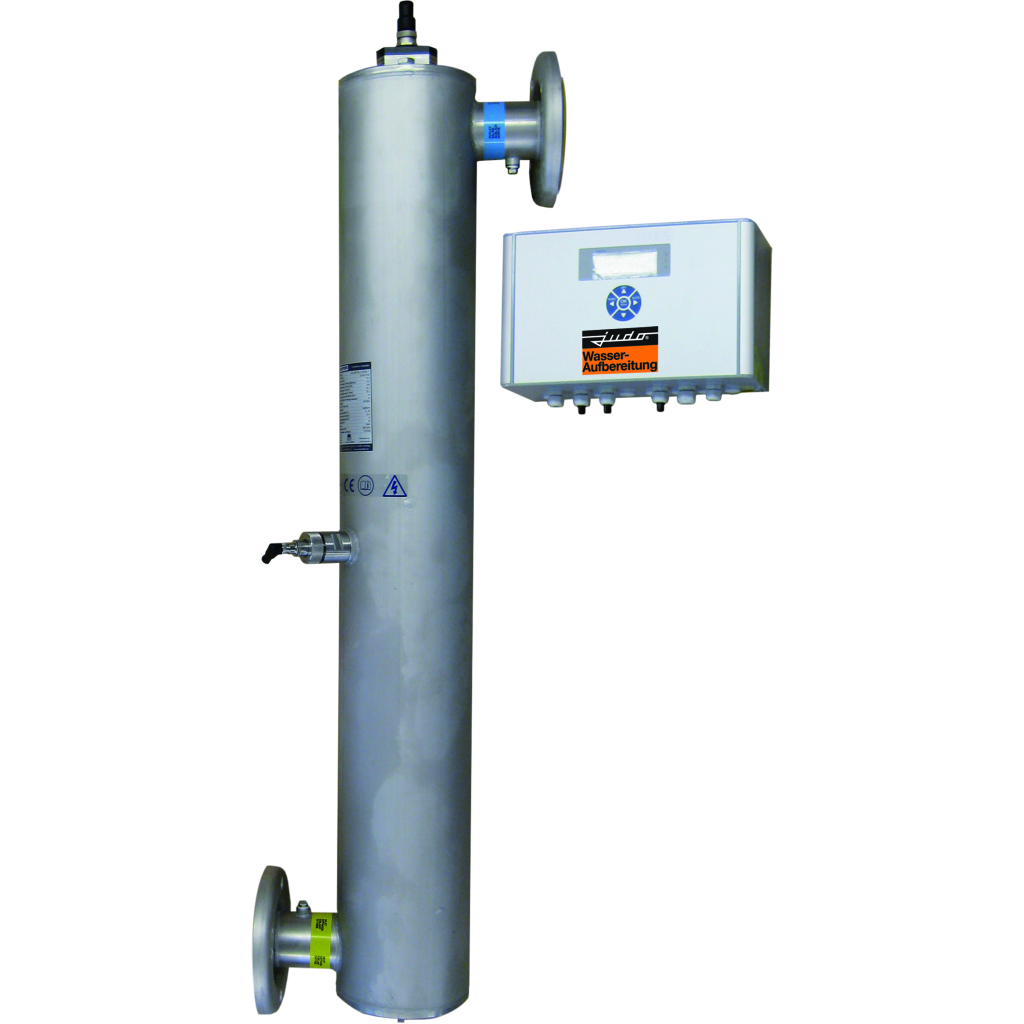
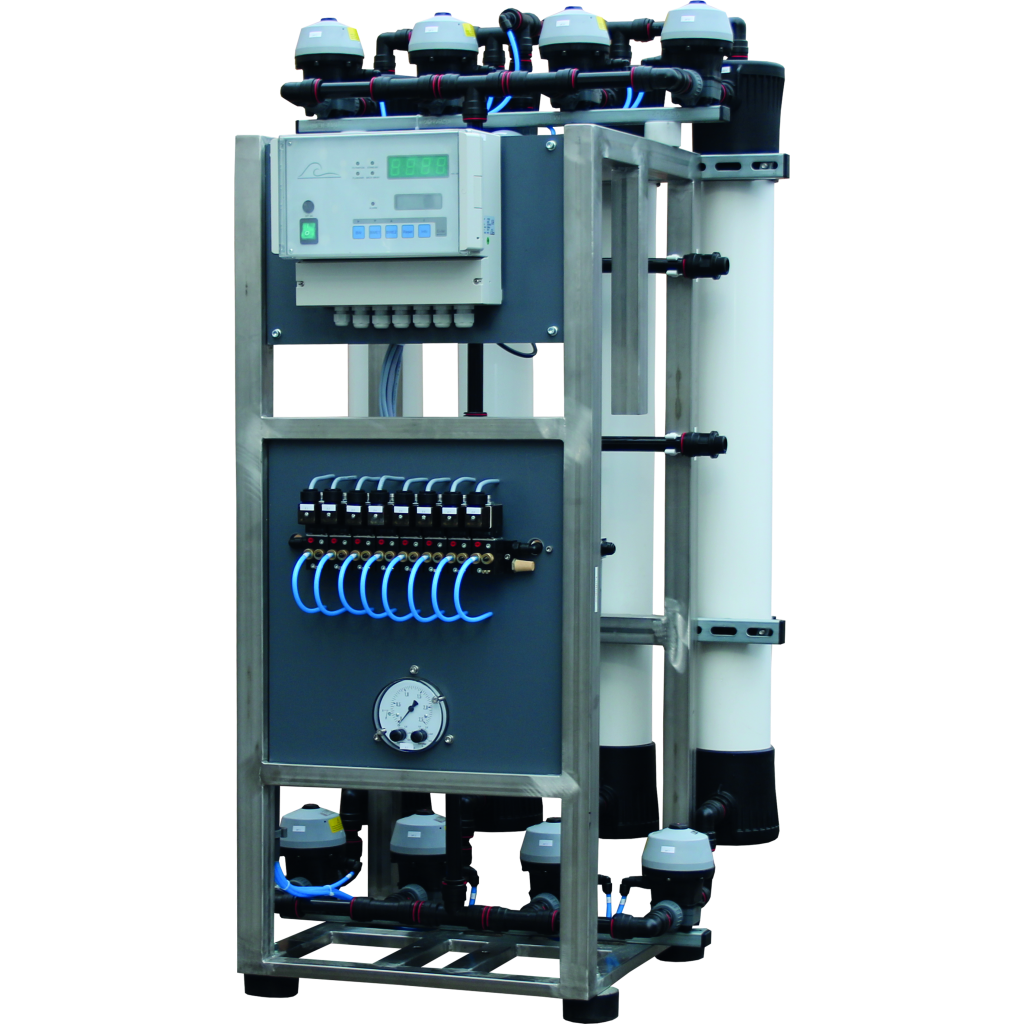
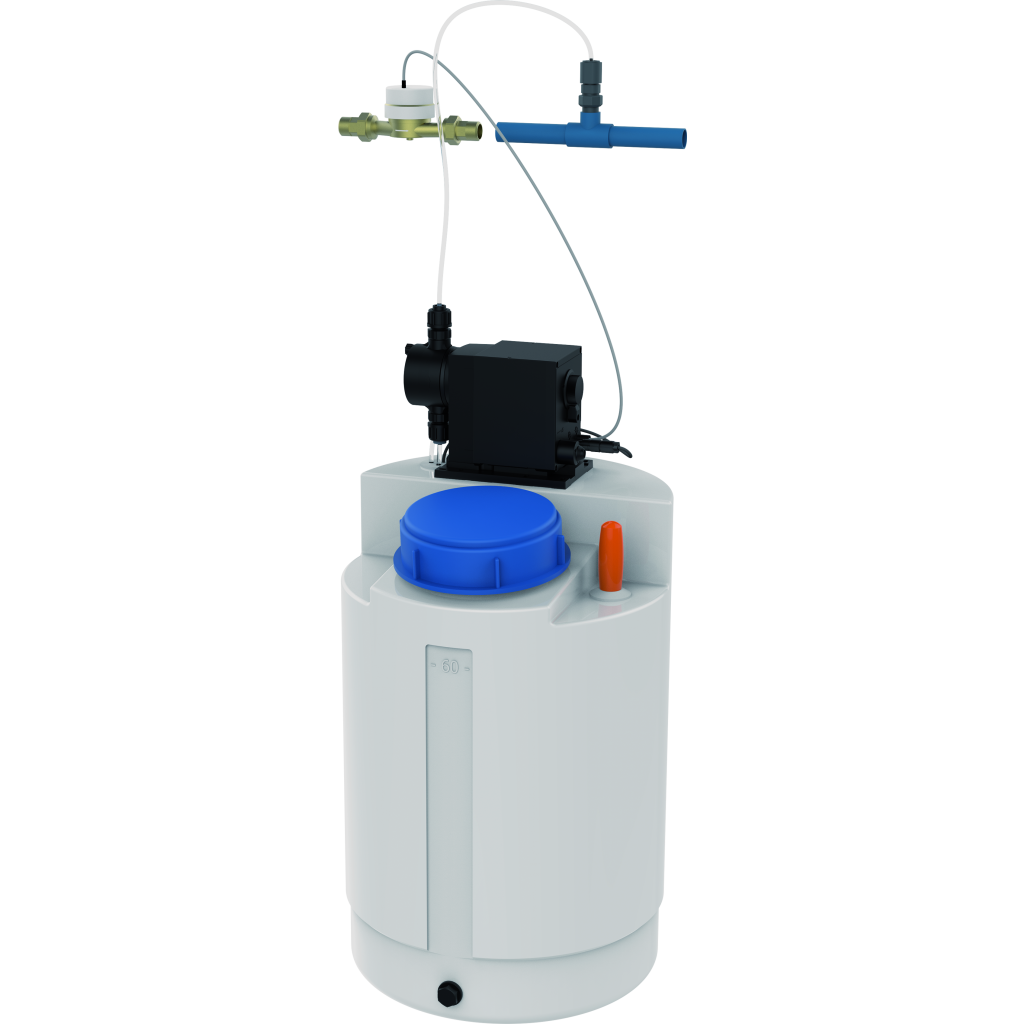

 © JUDO 2024 | All rights reserved.
© JUDO 2024 | All rights reserved. 

